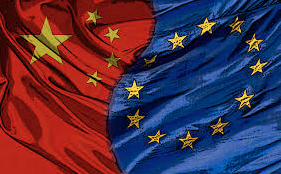BEIJING — Marking 50 years of diplomatic relations, Chinese President Xi Jinping called on the European Union to deepen mutual openness and resolve differences “properly,” signaling a renewed push to strengthen ties with Europe as global trade frictions escalate. His remarks, reported by China’s official Xinhua news agency on May 6, come as Beijing faces mounting economic pressure from sweeping U.S. tariffs and seeks to diversify its global partnerships.
While Xi avoided direct reference to the United States, analysts note his emphasis on opposing “unilateral bullying” and promoting fairness as a thinly veiled critique of Washington’s trade actions. “Healthy, stable China-EU ties not only advance mutual success but also bring light to the world,” Xi declared, framing closer Sino-European cooperation as a stabilizing force in turbulent times.
EU Sanctions Eased, High-Level Talks Set to Resume
In a significant step toward mending strained relations, the EU confirmed last week that China will lift sanctions imposed in 2021 on members of the European Parliament and its Human Rights Subcommittee. Those punitive measures had frozen dialogue after Europe sanctioned Chinese officials over alleged human rights abuses in Xinjiang.
With that diplomatic hurdle cleared, both sides have agreed to ramp up engagement. China’s Foreign Ministry announced plans for a series of high-level meetings in 2025, covering strategy, trade, green development, and digitalization. Foreign Ministry spokesperson Lin Jian underscored the urgency: “Under current circumstances, it is very important for China and Europe to strengthen dialogue and cooperation.”
EU Leaders Invited for Landmark Summit
Xi also extended formal invitations to European Council President Antonio Costa and European Commission President Ursula von der Leyen for an upcoming leaders’ summit, signaling Beijing’s intent to reset relations at the highest political level. The Chinese government has expressed confidence that renewed talks will “inject new impetus” into bilateral ties at a time when both economies face headwinds from rising protectionism and supply chain disruptions.
European and Chinese officials alike have described the relationship as one of the world’s most consequential, with trade between the two totaling over €850 billion annually. As both powers recalibrate in response to the shifting global order, the coming months will test whether this diplomatic thaw can yield substantive agreements on trade, technology, and climate cooperation. (zai)

